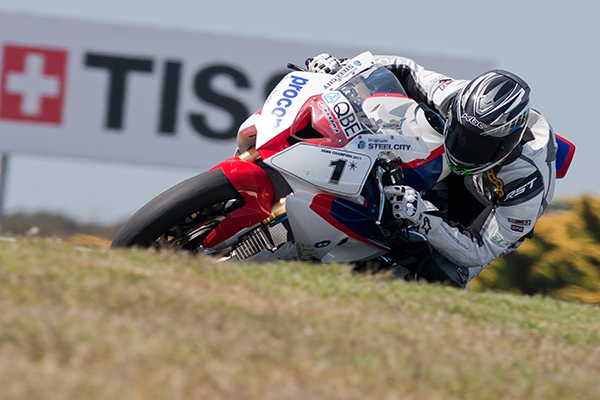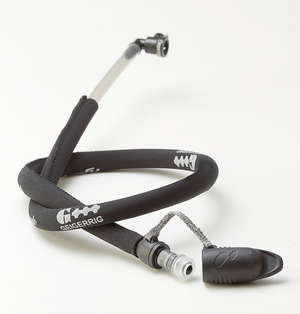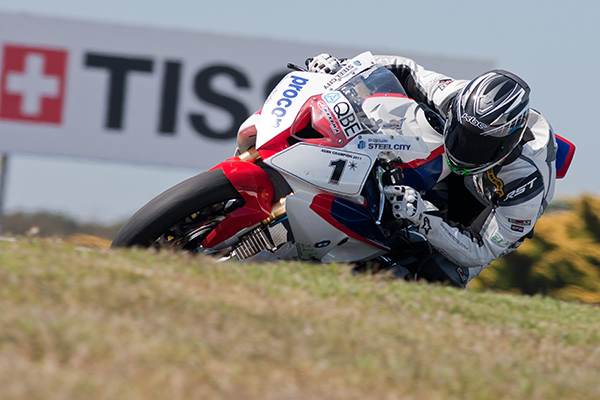
The study by University of Queensland PhD student Justin Holland should have benefits for all riders.
“What we’re hoping to see is that it will flow down into a general recommendation for people who do long rides,” he says.
“It will flow down to recreational riders and tell them what they need to be drinking. Road safety is one of the key measures we will look at.”
Justin needs about 120 state or national level racers to take part in his study of their sweat output and sodium content.
He will study individual requirements for sodium replacement and how that affects physical and mental performance.
“I don’t have any research data as yet, but it should affect fatigue, reaction times, mental alertness and concentration,” he says.
He and another student have already tested some Australian Superbike riders and V8 Supercar drivers and will expand their research next year.
“One of the key factors is the ability to lose heat to the environment so with motocross and superbike riders, they are in full protective gear and as a result they can’t let out heat to the environment as easily,” he says.
“They have what we call a microclimate in their racing suit which impairs their ability to lose heat. As a result they produce more sweat to decrease their core temp.
“One of the things we have found in ASBK compared with V8 Supercars, because they have sometimes have cool suits, is that the riders are at greater risk of dehydration during the race.
“There is no literature on how it can affect crash rates, but definitely from our perspective, if you can improve a rider’s cognition and alterness it should lead to a reduced risk of crash severity.”
Justin says the most important thing riders can do on long rides is to drink water regularly.
“The average rider probably has enough sodium in their diet anyway, but they should monitor their water intake,” he says.
“My recommendation is that drivers and riders should drink to minimise dehydration not eliminate it. By this I mean that they should dictate drinking to thirst, however consider the environment, duration and intensity at which they drive or ride.
“I often get my (test) drivers to monitor urine colour and changes in body weight to detect fluid lost. Body weight changes should be minimised to under 2%. After this point we start to see changes in performance. Urine colour should be a straw colour.”
Despite warnings about drinking coffee, Justin says only high levels of caffeine have a diuretic effect, or promotes urination and therefore dehydration.
“A few cups will have no effect on hydration. It’s only when you start to get up to substantial amounts like about 10 cups but only because they are drinking excess fluid. it would be like drinking three litres of water quite quickly.”
Justin, 23, graduated in 2011 with a bachelor of exercise and sport science, majoring in clinical exercise physiology.
He can be contacted on 0400 024492 or Justin.holland@uqconnect.edu.au.
Meanwhile, Geigerrig insulated drinking tubes are half price at Adventure Moto. Click here.



